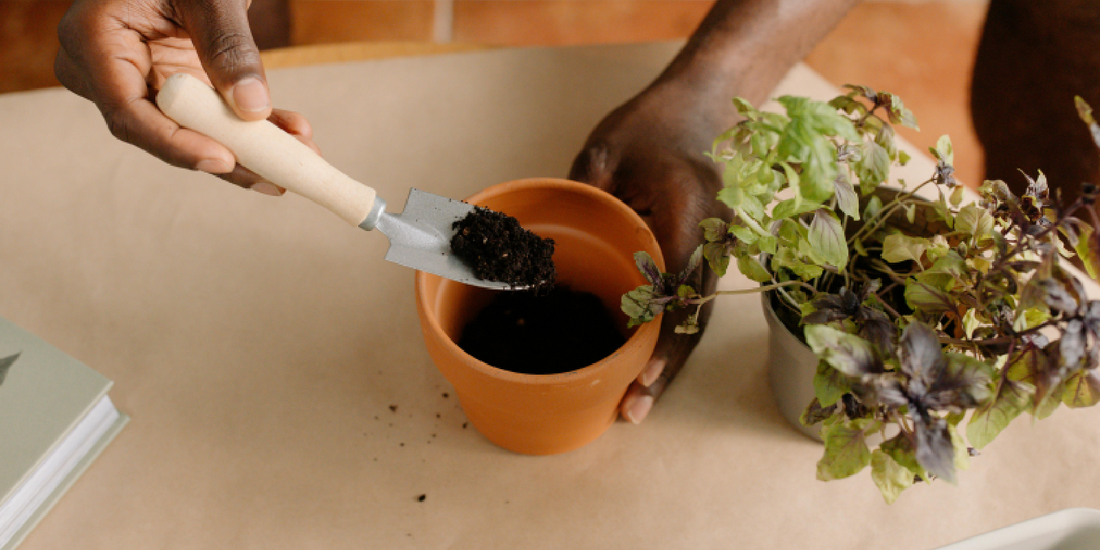
How to Use Grow Lights in the Winter
Share
For many plant lovers, winter presents one of the biggest challenges to indoor gardening. Shorter days, weaker sunlight, and cooler indoor temperatures can slow plant growth, trigger dormancy, or even cause leaf drop. But there’s good news: grow lights—especially efficient, full-spectrum LED models—can keep your plants healthy and growing strong all season long.
Whether you’re a seasoned gardener or just starting your indoor plant journey, this guide will walk you through how to use grow lights effectively in the winter and how tools like the amoyls VerdantGlow S-Shaped 8-Tier Plant Shelf with Grow Lights can make it easier.
1. Why Plants Struggle in Winter
During the winter months, plants face two main challenges:
- Reduced daylight hours – In many regions, sunlight can drop to less than 8 hours per day.
- Weaker light intensity – The sun’s lower angle and atmospheric conditions filter and scatter light, reducing the total amount of energy plants receive.
Even plants near a bright window may not get enough Photosynthetically Active Radiation (PAR) to thrive.
2. Why Grow Lights Are Essential in Winter
Grow lights act as a supplement or replacement for natural sunlight during the darker months. Modern full-spectrum LED grow lights can replicate the wavelengths plants use for photosynthesis, helping them maintain healthy growth patterns even when the weather outside is gray and cold.
Key benefits of using grow lights in winter:
- Keeps plants actively growing rather than going dormant
- Prevents leggy, weak stems caused by light deprivation
- Supports flowering and fruiting plants year-round
- Helps seedlings start strong before spring planting
3. Choosing the Right Grow Lights for Winter
3.1 LED vs. Fluorescent vs. HID
- LED – Best for energy efficiency, low heat output, and customizable spectrum.
- Fluorescent – Inexpensive but less energy-efficient; best for small-scale use.
- HID (High-Intensity Discharge) – Very powerful but produces excessive heat and consumes more electricity.
For most home gardeners, LED grow lights strike the perfect balance between performance, safety, and cost—especially when integrated into a plant shelf like the amoyls VerdantGlow.
3.2 Full-Spectrum Advantage
Winter growth requires both blue light (for leafy development) and red light (for flowering and fruiting). A full-spectrum LED grow light delivers both, ensuring plants receive the full range of wavelengths they’d get from natural sunlight.
4. How to Position Grow Lights in Winter
4.1 Height and Distance
- Seedlings: 6–12 inches above the plant canopy
-
Mature plants: 12–24 inches above
Too close, and you risk light stress or leaf burn; too far, and plants won’t receive enough light.
4.2 Duration of Light Exposure
In winter, most indoor plants benefit from 12–16 hours of artificial light daily to mimic long summer days. Using a timer ensures consistency—something plants respond to positively.
4.3 Angle and Coverage
Make sure light reaches all parts of the plant. The amoyls VerdantGlow shelf solves this with built-in LEDs on each tier, ensuring even coverage from top to bottom.
5. Balancing Light and Temperature in Winter
One challenge with winter growing is that rooms can become cool at night. While LEDs produce less heat than HID lamps, the small warmth they do produce can still help maintain a stable environment.
Tips for balancing conditions:
- Keep plants away from cold drafts or exterior doors.
- Avoid placing plants directly over heating vents (which dry them out).
- Use a small fan for gentle airflow to prevent mold in high-humidity setups.
6. Common Winter Grow Light Mistakes to Avoid
|
Mistake |
Why It’s a Problem |
Solution |
|
Too much light |
Can cause leaf burn and stress |
Adjust height or reduce hours |
|
Too little light |
Weak, leggy growth |
Increase hours to 14–16 daily |
|
Ignoring humidity |
Winter heating dries air, stressing plants |
Use a humidifier or pebble trays |
|
Not cleaning light fixtures |
Dust blocks light output |
Wipe LEDs monthly |
7. Winter Plant Care Beyond Lighting
While grow lights play a major role, healthy winter growth also depends on:
7.1 Adjusted Watering
Plants use less water in winter due to lower metabolic rates. Overwatering can cause root rot. Always check soil moisture before watering.
7.2 Humidity Management
Indoor heating can drop humidity to 20–30%, far below the 50–70% many houseplants prefer. A humidifier or grouping plants together helps maintain a more plant-friendly atmosphere.
7.3 Nutrient Balance
Winter is not the time for heavy fertilizing unless you’re actively encouraging growth with strong lighting. For most plants, monthly feeding with a balanced fertilizer is enough.
8. How the amoyls VerdantGlow Shelf Simplifies Winter Growing
The VerdantGlow S-Shaped 8-Tier Plant Shelf with Grow Lights was designed for year-round gardening and solves many winter-specific challenges:
- Built-in full-spectrum LED grow lights → Provide consistent, season-independent lighting
- Vertical multi-tier design → Maximizes space while creating a natural humid microclimate
- S-shaped frame → Improves light distribution and airflow
- Modern style → Fits beautifully into living spaces without looking like industrial grow equipment
By integrating light and structure, it eliminates the need for separate lamp setups, making winter plant care more streamlined.
9. Example Winter Lighting Schedules
|
Plant Type |
Hours of Light in Winter |
Notes |
|
Herbs (basil, mint, parsley) |
14–16 hrs |
Encourages constant harvest |
|
Leafy greens (lettuce, spinach) |
12–14 hrs |
Keep temperature 60–70°F |
|
Flowering plants (orchids, African violets) |
12 hrs |
Avoid direct heat |
|
Succulents & cacti |
10–12 hrs |
Lower humidity preferred |
10. Final Thoughts
Winter doesn’t have to be a downtime for your plants. With the right grow lights, strategic positioning, and a little attention to humidity and temperature, you can keep your indoor garden thriving all year long.
Tools like the amoyls VerdantGlow S-Shaped 8-Tier Plant Shelf with Grow Lights make it even easier—integrating professional-quality lighting into a stylish, space-saving design that supports both plant health and home décor.
